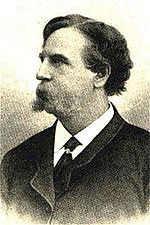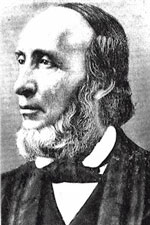It came upon the midnight clear, that glorious song of old,
From angels bending near the earth to touch their harps of gold.
“Peace on the earth, goodwill to men, from Heaven’s all-gracious King.”
The world in solemn stillness lay, to hear the angels sing.
Still through the cloven skies they come, with peaceful wings unfurled,
And still their heavenly music floats o’er all the weary world.
Above its sad and lonely plains they bend on hovering wing,
And ever o’er its Babel sounds, the blessed angels sing.
Oh, ye beneath life’s crushing load, whose forms are bending low,
Who toil along the climbing way with painful steps and slow,
Look now, for glad and golden hours come swiftly on the wing!
Oh, rest beside the weary road and hear the angels sing.
For lo! The days are hastening on, by prophet bards foretold,
When with the ever-circling years comes ‘round the age of gold,
When peace shall over all the earth its ancient splendours fling,
And the whole world give back the song which now the angels sing.


Who would expect a Christmas carol to be written for political reasons? Yet this is apparently what motivated Edmund Sears back in the mid-19th century United States. His concern about social and political upheaval made him want to remind people of the angels’ message given at Christ’s birth. There were tensions between the north and south, which eventually caused the American Civil War; the Industrial Revolution caused problems for tradesmen and craftsmen in New England; finally, the California Gold Rush caused some people to go on a frantic search for riches, perhaps forgetting other values in life. Sears hoped that “Peace on the earth, goodwill to men,” would be expressed and experienced by people once again. Edmund Sears gained his doctoral degree in divinity from Harvard in 1837, and although he became a Unitarian minister, he believed in and preached the doctrines of the Trinity and of the Deity of Jesus.
The tune commonly used is simply called “Carol”, and was written by Richard Willis, an American who studied for six years in Germany with Felix Mendelssohn. It was first sung in 1849 in a Sunday School celebration in Quincy, Massachusetts. There, the Reverend Dr. Morrison said, “However poor my Christmas sermon may be, the reading and singing of this hymn are enough to make up for all deficiencies.”
How the world needs these reminders again in December 2015! Share on XWords: Edmund Sears Music: Richard Willis
S.A. Song Book #83 Section: The Lord Jesus Christ – Birth
Reference: Ian Howes, Celebration Morning
S.A. Song Book #83 Section: The Lord Jesus Christ – Birth Share on XYouTube – It Came upon the Midnight Clear, King’s College Choir ENJOY






